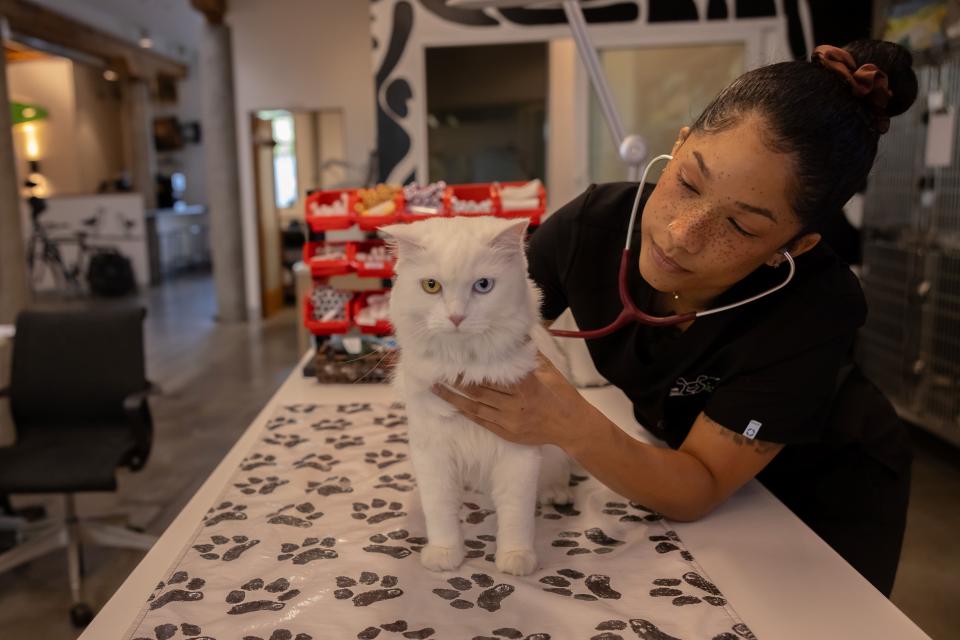
Preventive Care for Cats Key Points
Regular Exams: Cats are adept at hiding signs of illness, making regular vet visits crucial for early detection of issues. Annual exams are recommended for all cats, and bi-annual exams for cats over eight years old.
Comprehensive Care: A preventive care program includes annual or semi-annual physical exams, blood and urine analysis, ongoing health education, and periodic at-home monitoring. The exams cover various aspects of cat health, such as vaccination status, dental health, nutrition, and more.
Nutrition: Obesity is a common issue in cats. Veterinarians can guide you in creating a balanced diet to maintain your cat's optimal weight.
Dental Health: Cats usually don't show when they're experiencing dental issues. By age four, many cats will need dental care, which may require anesthesia and X-rays.
Integrative Medicine: Complementary therapies like homeopathy, and laser therapy can be integrated into your cat's preventive care plan.
Hygiene: Owners should regularly groom, including brushing and claw trimming. Some cats may tolerate daily teeth brushing.
Cancer Detection: Early detection is crucial for effective cancer treatment. Regular vet check-ups can catch signs that may be obscure to owners.
Flea & Tick Prevention: Both indoor and outdoor cats are susceptible to fleas and ticks. A preventive plan is strongly recommended to keep these pests at bay.
Vaccinations: Aside from the rabies vaccine, which is legally required, other vaccinations are highly recommended based on your cat's lifestyle and location.
